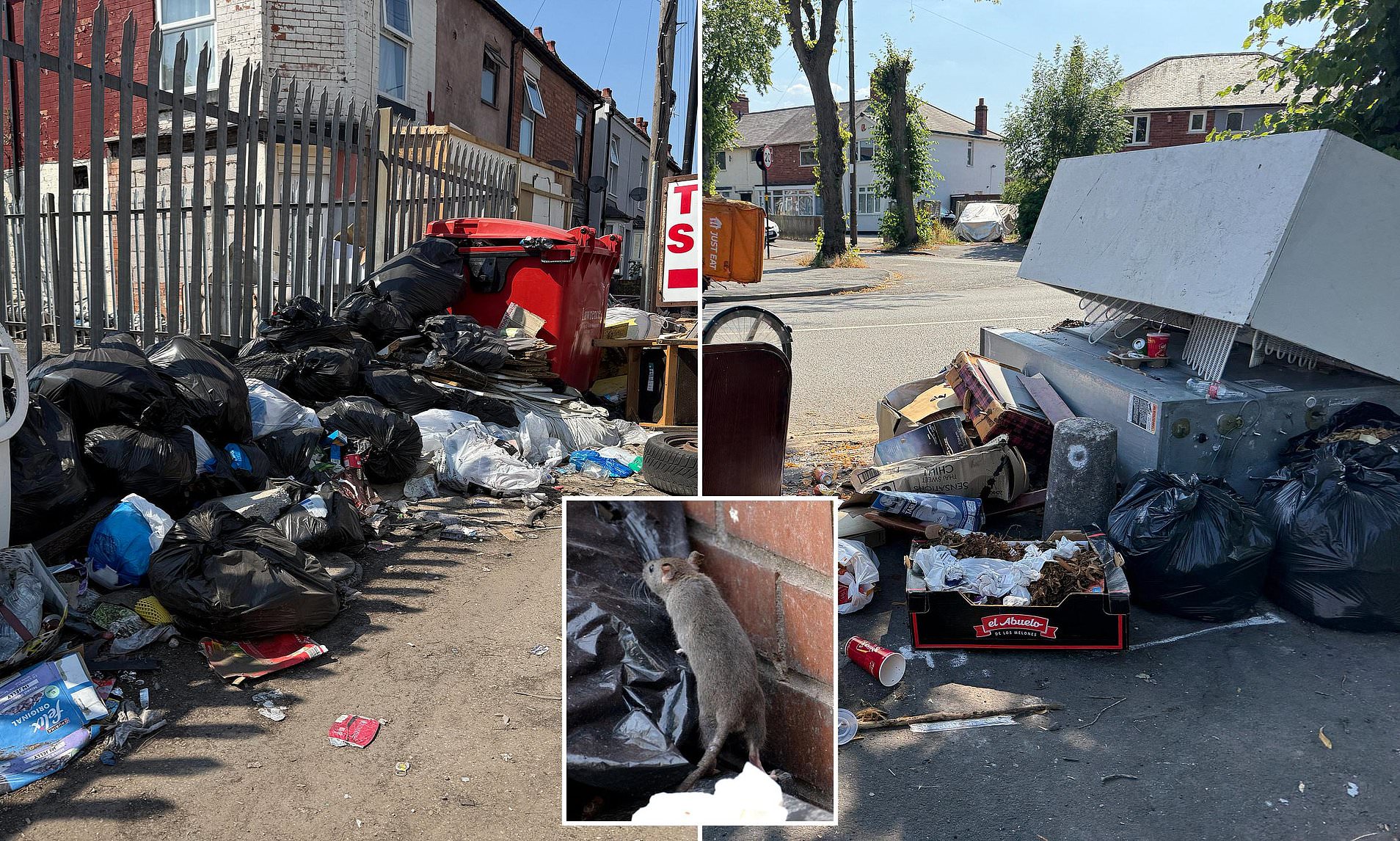The Ongoing Crisis in Birmingham: A City Struggling with Waste and Rats
Four months after the start of a full-scale strike in Birmingham, the city continues to face a severe waste management crisis. Piles of rotting garbage and an increasing rat population have become a daily reality for many residents, particularly in densely populated areas like Small Heath and Bordesley Green. These neighborhoods are now literally overflowing with refuse, creating unsanitary conditions that have left locals frustrated and concerned.
In some streets, such as Carlton Road, residents have resorted to piling their household waste at the end of the road. This practice has led to a situation where only certain homes are forced to deal with the stench and filth. With temperatures reaching 32°C during the day, the situation is not just unpleasant—it’s dangerous.
A woman from Somalia, who now lives in a small side street in Small Heath, described the sanitary conditions as worse than what she experienced in her home country. She told the Mail, “The Government should sort this out.” She gestured toward a row of overflowing wheelie bins outside the terraced houses, explaining that she can’t fit these bins in her car. Instead, she double-bags her rubbish and drives it to the tip. However, many others in the area simply carry their waste to the end of the road and dump it there.
“It isn’t fair on the people that live down that end of the street,” she said. “I see big rats often now. I used to see them sometimes, but now it is all of the time. In Somalia, I never saw a rat—it is very clean there.”
The strikes began in January following the removal of a waste recycling and collection officer role. Full-scale action started on March 11, leading to widespread disruption in waste collection services. Ironically, the house closest to one of the piles of bin bags on Carlton Road belongs to Iqbal Khezar, a 30-year-old waste operative for Birmingham City Council. He works for the Labour-run authority but admitted to the Mail that it was “horrible having to see this rubbish outside my house. There are plenty of rats running about.”
Further along Victoria Street, a pile of bin bags dumped on a verge beneath a tree had been torn open by rodents, spilling waste onto the ground. Nearby, an old fridge-freezer and a mattress were found beside a similar pile of rotting waste.
In Balsall Green, the situation was even more severe. On Grove Cottage Road, the Mail encountered one of the worst waste mountains. Items such as a child’s car seat, a wooden chair, flat-pack furniture off-cuts, and even the underfloor storage area from a car boot were among the items illegally dumped. Mattresses, fridges, and divan bases also joined the growing mountain of refuse.
Ahmed, a 25-year-old resident, said that the tree-studded patch of dead grass had long been a magnet for fly-tippers, even before the bin strike. His friend Shakwar Khan, 26, added, “People started dumping their bin bags there during the strike, and then others followed. Sometimes it gets collected, but that seems to encourage people to just dump more waste here.”
While the impact of the bin strike was evident in these neighborhoods, nearby areas like Moseley and Sparkbrook showed little sign of the crisis. Mounds of rubbish photographed in Fraser Road, Sparkhill, had been cleared by the time the Mail visited.
Birmingham City Council stated that it had been able to “deploy our fleet in full and on time to collect waste in Birmingham” since securing an injunction in May to prevent the obstruction of bin lorries. The council added, “All excess waste has now been removed… and we have returned to scheduled collections within our contingency plan, meaning one collection per week for every household.”







